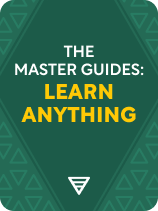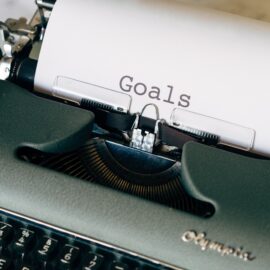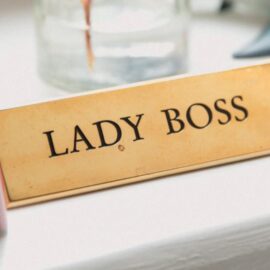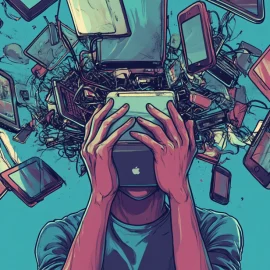

This article is an excerpt from the Shortform book guide to "The Master Guides: Learn Anything" by Shortform. Shortform has the world's best summaries and analyses of books you should be reading.
Like this article? Sign up for a free trial here.
Do you say “I can’t” a lot? Did you have teachers who believed in you?
Whether you’re a student in school or looking to pick up new skills, you need to learn effectively. Your beliefs about learning—whether positive or negative—affect your ability to learn. That includes your beliefs about learning in general and your beliefs about your own learning capacity.
Keep reading to know more about the power of what you believe.
Beliefs About Learning
Your beliefs about learning matter. If you want to learn something, the first step is to believe you can learn it. Commonly referred to as a “growth mindset,” this idea is rooted in the concept of neuroplasticity—the brain’s ability to change and adapt throughout our lives.
In Mindset, psychologist Carol S. Dweck differentiates between a growth mindset and the more common fixed mindset, in which you believe your abilities are unchangeable and that you were born with a certain amount of intelligence. On the other hand, if you adopt a growth mindset, you view your innate abilities as a starting point on which you can build with hard work, persistence, and the right learning strategies.
In Limitless Mind, educator Jo Boaler explains that, any time you learn a new idea, your brain forms new connections, strengthens them with repeated use, and creates new links between preexisting neural pathways. The key lies in adopting the belief that you can learn. Research shows that your attitude toward learning has a direct impact on how your brain functions: People who believe they can learn show heightened levels of brain activity compared to those who believe their abilities are fixed.
When you have a fixed mindset, you believe (or were told) that you were born with specific traits and a certain, unchangeable amount of intelligence. Dweck and Boaler both assert that many of us are trained in this false mindset from an early age.
Eliminate Unhelpful Beliefs
So, how do you adopt a healthy mindset toward learning if you’ve gone your whole life believing you can’t do it? In Limitless, life coach Jim Kwik lays out three steps to this process:
- Identify limiting beliefs. Be mindful of times when you tell yourself that you can’t do something. Look out for phrases like “I can’t,” “I don’t,” and “I’m not.”
- Find the facts. Limiting beliefs are often untrue. What you think are facts about yourself may actually be incorrect opinions. Therefore, ask questions to get to the truth.
- Form new beliefs. Once you’ve labeled your self-limiting beliefs and found the truth behind them, you can replace them with new beliefs that are more accurate and helpful.
A healthy mindset is also crucial to learning because unhealthy mindsets result in thoughts, feelings, and behaviors that hinder success. In The Only Study Guide You’ll Ever Need, Jade Bowler warns that a negative mindset triggers a fear of failure, which leads to procrastination and a lack of motivation. You may find that you have no desire to learn, either because you’ve given up or hold negative beliefs about your ability to succeed.
| Jack’s and Sara’s Beliefs In a fictional example, Jack tried to learn guitar when he was young but quickly gave up after his early efforts produced little success. Later in life, he realizes that not following through is a source of regret. He begins to understand that when he was young, he had an unrealistic expectation of quick results. To follow his dream as an adult, he has to believe that playing guitar is an achievable goal, but it will take hard work and persistence. Sara faces a different challenge. As Boaler describes in Limitless Mind, girls in school are still told today that they’re not suited for science and math. Her classmates may receive different messages, such as that they’re only good at sports or that they don’t have an inherent talent for the arts. To overcome negative messaging, students like Sara may need the help of parents and role models to form healthy beliefs about their abilities. Sara was inspired by women in the space program, and Jack is supportive of her ambitions. |

———End of Preview———
Like what you just read? Read the rest of the world's best book summary and analysis of Shortform's "The Master Guides: Learn Anything" at Shortform.
Here's what you'll find in our full The Master Guides: Learn Anything summary:
- How you can learn anything you want at any point in your life
- Advice from experts on how to master the skill of learning
- A guide on how to improve your memorization, comprehension, and more






